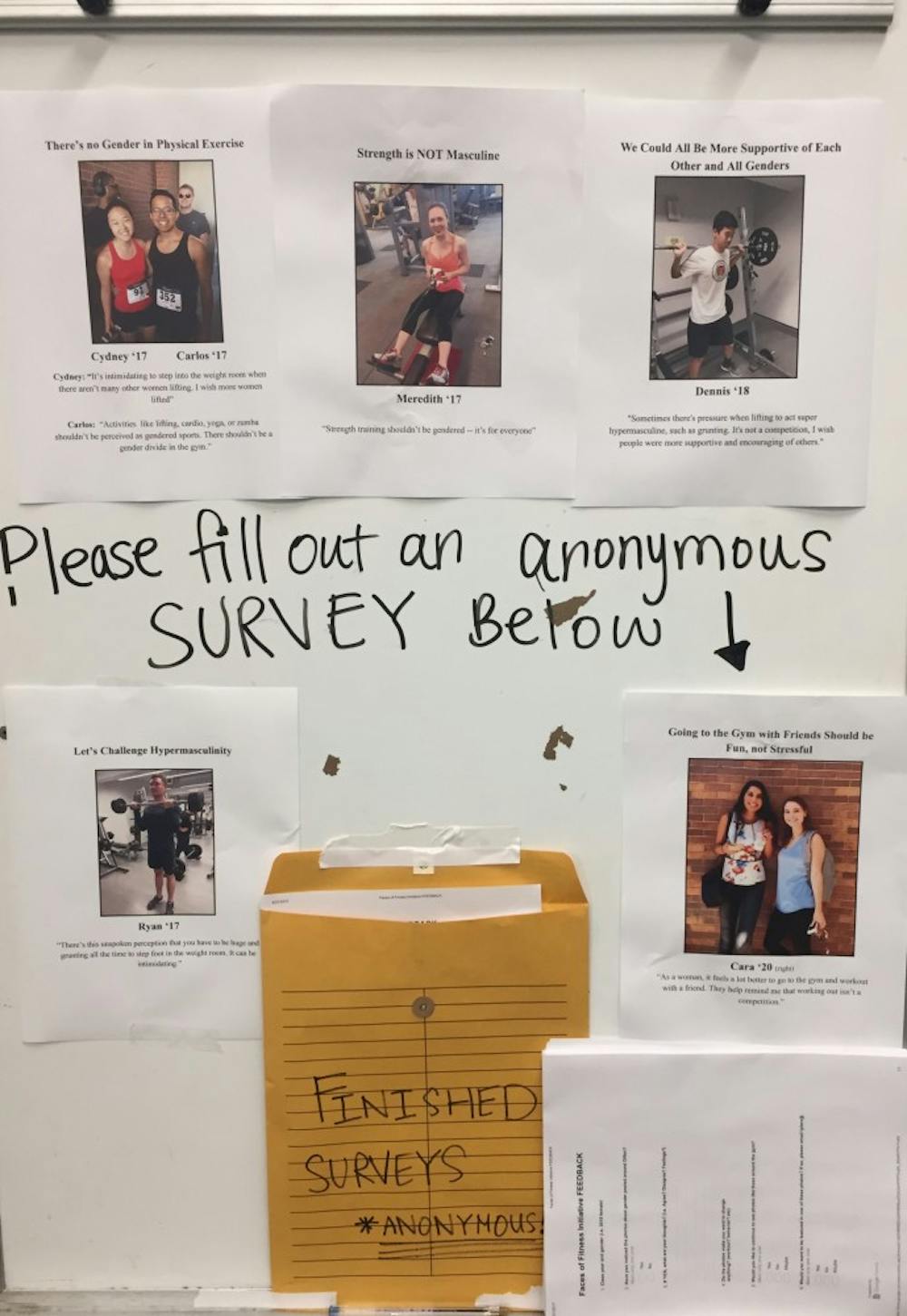The Faces of Fitness Initiative took place from Friday to Monday, seeking to encourage gym-goers to think about the presence and effects of hypermasculinity in the gym environment.
Posters pertaining to this theme were displayed inside the Stephens Fitness Center. The posters contained quotes about hypermasculinity from students accompanied by their pictures; titles included “Strength is NOT Masculine,” “Let's Challenge Hypermasculinity,” and “There's No Gender in Physical Exercise.”
Additionally, a station was set up in the Fitness Center where students could anonymously fill out a survey to both share their ideas about hypermasculinity in the gym setting and give feedback on the initiative.
The initiative was a pilot program conceived by Kesin Ryan Dehejia ’20, Cydney Kim ’17, and Tyler Valicenti ’18. It was started as an assignment for EGR 200, an entrepreneurship class called “Creativity, Innovation, and Design” that all three are taking.
“The topic of this class is gender inequality on campus, … and we narrowed in on a specific place on campus and a specific way in which we can help address this problem or respond to it in some way,” Kim said.
After interviewing 20 students from all four class years on gender inequality on campus, they decided on the topic of hypermasculinity, she added.
Valicenti explained two main objectives of the initiative.
“One, to bring awareness to the issue of hypermasculinity, and two, to form solidarity around hypermasculinity, so that people who experience hypermasculinity and feel uncomfortable because of it can know that other people feel the same way.”

Kim said that the group received feedback from 77 students and that 65 percent were in favor of the initiative.
Valicenti said that some guys said, ‘Oh I hate this, it needs to be taken down. Grunting’s fine, we should be able to grunt.’ He noted that the group’s findings reaffirmed their hypothesis that there needs to be more awareness on campus regarding the issue of hypermasculinity.
“Our vision is that eventually we’ll tackle hypermasculinity not just within Stephens Fitness Center, but hopefully also within other spaces where there is hypermasculine behavior that makes other people uncomfortable,” Dehejia said.
The trio’s project, beyond the pilot program, will be called “Our Space,” indicating that certain spaces that are dominated by hypermasculinity will have to be reclaimed by everyone, according to Dehejia. As part of their class, the group will present their project idea to a panel of representatives from groups including the Women*s Center, the Men’s Allied Voices for a Respectful & Inclusive Community Project, and the LGBT Center on Tuesday, May 2.









